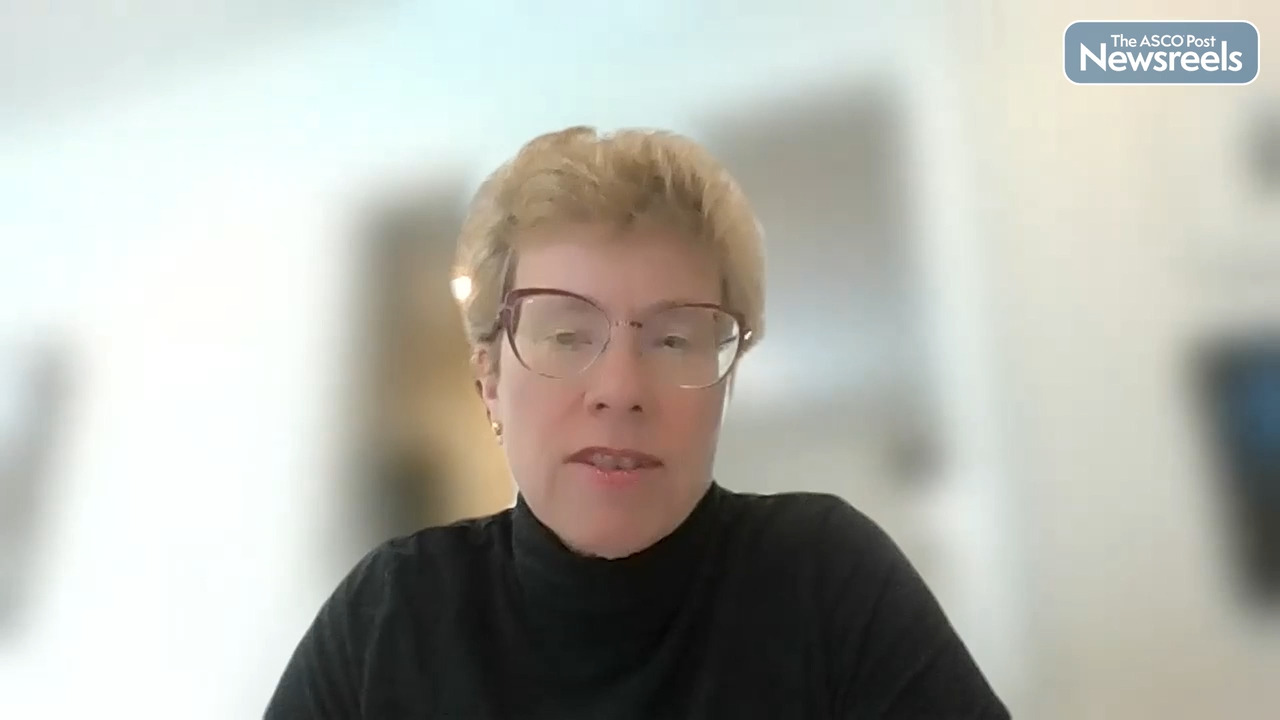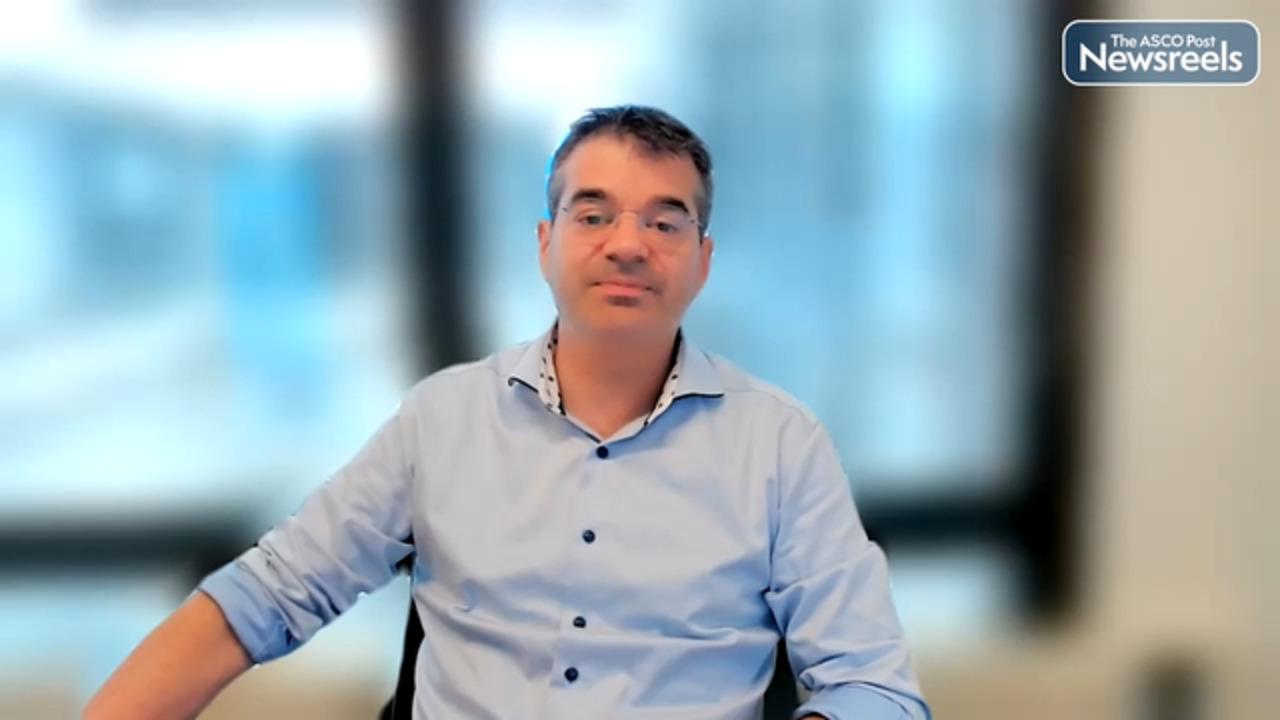Nigel Russell, MD, on Acute Myeloid Leukemia: New Findings on FLAG-Ida and Gemtuzumab Ozogamicin
EHA Hybrid Congress 2023
Nigel Russell, MD, of Guy’s and St. Thomas’ NHS Foundation Trust, discusses the latest results from the AML19 trial, which showed the chemotherapy regimen FLAG-Ida (fludarabine, high-dose cytarabine, idarubicin, and granulocyte-colony stimulating factor), when combined with gemtuzumab ozogamicin, reduced levels of measurable residual disease and improved overall survival in patients with NPM1-mutated acute myeloid leukemia after induction therapy.
The ASCO Post Staff
Nikhil Munshi, MD, of Dana-Farber Cancer Institute, discusses the final safety and efficacy results from the phase Ib/II CARTITUDE-1 trial of ciltacabtagene autoleucel. This CAR T-cell therapy targets B-cell maturation antigen in patients with relapsed or refractory multiple myeloma. Longer median progression-free survival was observed after a single infusion of this agent than any previously reported therapy in heavily pretreated patients (Abstract S202).
Nicholas J. Short, MD, of The University of Texas MD Anderson Cancer Center, discusses findings from a phase II study subgroup analysis that explored the question of whether ponatinib and blinatumomab, both active in Philadelphia chromosome–positive acute lymphoblastic leukemia, could offer an effective chemotherapy-free treatment for patients with newly diagnosed disease as well as reduce the need for allogeneic stem cell transplantation (Abstract S118).
Nicholas J. Short, MD, of The University of Texas MD Anderson Cancer Center, discusses new data on improved outcomes in patients with relapsed or refractory acute lymphoblastic leukemia who received the combination of mini-HCVD and reduced-dose inotuzumab and then blinatumomab in sequence. In mini-HCVD, cyclophosphamide and dexamethasone are administered with a 50% dose reduction, methotrexate with a 75% dose reduction, cytarabine with an 83% dose reduction, and anthracycline is omitted entirely. (Abstract S119)
The ASCO Post Staff
Jennifer R. Brown, MD, PhD, of Dana-Farber Cancer Institute, discusses phase I/II findings from the Bruin study of resistance to pirtobrutinib in patients with covalent BTK inhibitor–pretreated chronic lymphocytic leukemia (CLL). The aim of the study was to explore the genomic evolution of resistance to this agent.
Arnon Kater, MD, PhD, of the University of Amsterdam Medical Centers, discusses results from the phase II VISION/HO141 trial of venetoclax plus ibrutinib in patients with relapsed or refractory chronic lymphocytic leukemia (CLL). For patients with undetectable measurable residual disease (MRD) after 15 cycles of treatment, treatment cessation with MRD-guided reinitiation was found to be a feasible approach.


